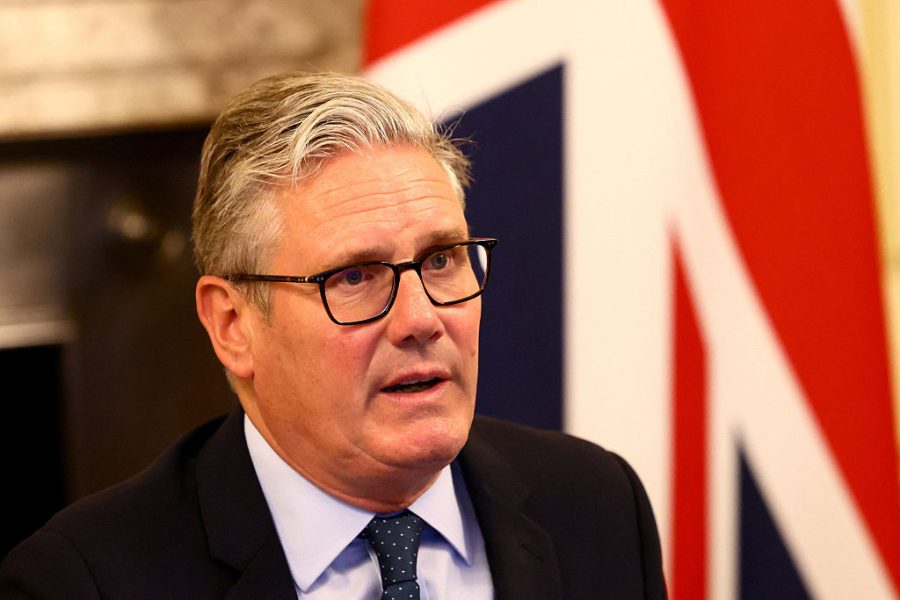Keir Starmer knows not to waste a crisis. The loss of Angela Rayner has been a huge blow to his government. She was the most charismatic politician on the front bench of the Labour government. Her ability to go toe to toe with populist politicians was a huge asset, particularly as the relentless rise of Reform continues. And on the backbench she will still be one of the most charismatic politicians in the country.
Yet the waters close swiftly over former politicians as Keir Starmer’s ruthless reshuffle shows. There was an elegance in the moves that reflected deep thought about the shape of the cabinet that the Prime Minister wanted. This is the real reset moment, not the shakeup in the No. 10 staff. This is not a shift to the right as some have suggested – the soft left policies of rail nationalisation, climate transition, and employment rights remains. This is an elevation of the doers, fixers and communicators.
Two ‘ministers for the Today programme’ – the politicians sent out by No 10 on the stickiest days because they never slip up – are now in cabinet. Darren Jones, recently appointed to the new role of Chief Secretary to the Prime Minister, is now Chancellor of the Duchy of Lancaster: a vacancy that was created by the elevation of Pat McFadden, former Political Secretary to Tony Blair, to the cabinet to run a new super-ministry combining the Department for Work and Pensions with responsibility for skills transferred from the Department for Education. This gives him the scope to come back to the vexed issue of welfare reform by showing that there are successful routes back into work for those on sickness benefits. Though top of his agenda will be lifting the two-child limit, which has to happen because otherwise this would be the first Labour government not to cut child poverty.
The elevation of David Lammy to Deputy Prime Minister is a clear recognition of his central role in the undoubted success this Labour government has had abroad. Lammy’s clear doctrine of ‘progressive realism’ has given a North Star to every aspect of foreign policy. Internationally, Keir Starmer, John Healey and David Lammy have always sought to engage with the world as it really is, but always worked – at CHOGM, in NATO, with the EU – to make it a better one. Now he has to articulate a similar through line in domestic policy which has so far lacked a reform principle that could unite health reform, welfare reform, prison reform, education reform, and local government reform. Without a framing principle, domestic policy has floated unmoored. Lammy’s elevation to this position also gives him a platform to challenge the divisive racialisation of politics by both the Tories and Reform.
Success on the international stage – where he is highly respected – is a clear reason why Douglas Alexander was promoted from Minister for Trade Policy and Economic Security to Secretary of State for Scotland. He is a heavy hitter and former cabinet minister from the New Labour and is just the type of ‘wartime consigliere’ needed as Labour in Scotland face a threat from two types of nationalism – traditional Scottish nationalism and Reform’s British nationalism which is surging in popularity.
All the other cabinet moves strengthen the roles of those who can ‘grip’ issues and lead. Steve Reed, successful reformer as a modernising council leader in London, takes on the housing ministry where he has to turbocharge the progress made in deregulation. His priority will be solve the stalling of housebuilding in London which will mean addressing the sclerotic bureaucracy of the new Building Safety Regulator and the cost burdens of other policies such as the hastily adopted ‘two staircase’ one.
Peter Kyle’s success in Science and Technology is recognised with a move to run the whole of government’s industrial strategy. Shabana Mahmood has long wanted to run the Home Office and now has a chance to shine. Her seriousness on crime will be reassuring to the working-class voters Labour has lost to both Reform and independents, but her test will be delivering on irregular migration. She showed decisiveness and operational skill when dealing with the prison overcrowding crisis she inherited from the Tory government. Now she must show she can control the boats. The framework is in place thanks to the work done with France by Yvette Cooper who has been promoted to Foreign Secretary where she has the opportunity to become the Margaret Beckett of this government.
This is an invigorating reshuffle. A difficult hand has been played well by No. 10, with a stronger cabinet emerging. As his biographer Tom Baldwin has observed it has always been Keir Starmer’s way to get things right second time. So, this is truly Phase 2 of the Labour government – and with elections in London, Wales and Scotland next May in less than a year there be a referendum on how well the changes have gone.








Comments